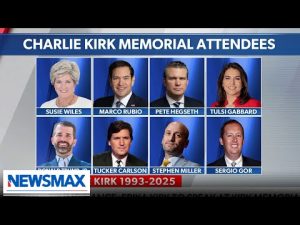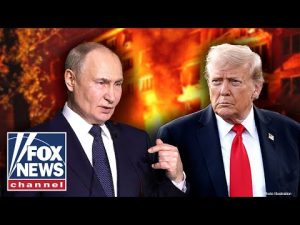In today’s politically charged environment, the debate surrounding the effectiveness of leadership styles has never been more relevant. A recent discussion brought to light the argument that unconventional and sometimes brash styles of leadership—like those exhibited by former President Trump—may actually serve a vital purpose in our current political landscape. This assertion raises many eyebrows, given the polarized nature of American politics, but it might just hold water when scrutinized closely.
For starters, let’s consider the successful actions taken during Trump’s presidency. There’s an argument to be made that many key figures, such as Supreme Court Justices Neil Gorsuch and Brett Kavanaugh, owe their appointments to a president willing to take risks and go against the grain. If a Democrat had held the office, it’s likely that these judicial picks would not be sitting on the nation’s highest court. This alone illustrates how a bold leader can shape the future of national policy and legal interpretations for generations.
Moreover, it’s worth exploring the idea that leadership often requires the ability to engage in tough negotiations and stand firm against adversaries. The comparison drawn to a “street fighter” might appear rough around the edges, but it underscores a crucial point: sometimes the country needs a fighter who is willing to confront not just political opponents, but also the entrenched bureaucracy that can slow progress. When analyzing the state of national security, many would agree that a more assertive approach could yield both immediate and long-term benefits, especially when facing global threats.
The effectiveness of this style of leadership can resonate soundly with the American populace. Many citizens long for a leader who breaks away from political niceties and takes charge. The argument made that if Trump were not president, adversaries such as Qassem Soleimani might still be alive is not only provocative but thought-provoking. It challenges readers to consider the repercussions of soft leadership in an increasingly hostile world.
Despite the controversies that often swirl around Trump, focusing on his results may help shift the narrative. The image of a “fighter” can be reframed positively. Viewers may acknowledge that while his style is polarizing, the underlining principle of strong yet contentious leadership might be necessary in a time when opposition parties seem to have drifted so far to the left. Freedom, security, and economic prosperity often hang in the balance when determining who is fit to lead, and voters have shown time and again that they favor action over rhetoric.
In conclusion, as the political landscape continues to evolve, it’s critical to remember that unconventional leadership styles can often yield significant results. The notion that a “street brawler” might be exactly what the country needs could very well resonate deeply with a electorate tired of traditional political approaches. As the upcoming elections approach, it’s imperative for conservatives to engage in candid discussions about the effectiveness of their leaders, and the merits of having someone ready to fight for American values, even if that means being a little rough around the edges. After all, in politics as in life, sometimes tough love is what shows true leadership.







